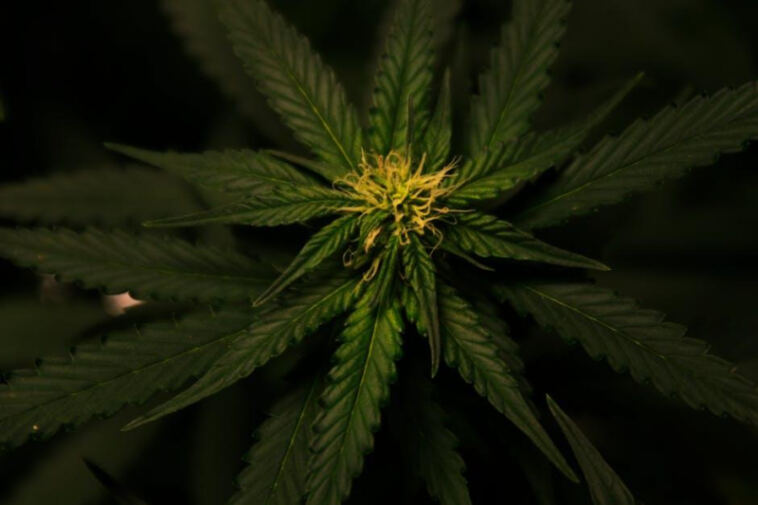- Like
- SHARE
- Digg
- Del
- Tumblr
- VKontakte
- Flattr
- Buffer
- Love This
- Save
- Odnoklassniki
- Meneame
- Blogger
- Amazon
- Yahoo Mail
- Gmail
- AOL
- Newsvine
- HackerNews
- Evernote
- MySpace
- Mail.ru
- Viadeo
- Line
- Comments
- Yummly
- SMS
- Viber
- Telegram
- JOIN
- Skype
- Facebook Messenger
- Kakao
- LiveJournal
- Yammer
- Edgar
- Fintel
- Mix
- Instapaper
- Copy Link
In the labyrinth of the criminal justice system, there lies a contentious debate between the scales of justice and the green leaf of cannabis. In recent years, the intersection of cannabis legalization and social justice has become a focal point of discussion, as advocates argue for equity in the legal market and reparations for those disproportionately impacted by the war on drugs. This article will delve into the delicate balance between cannabis reform and social justice, exploring the complexities and implications of this evolving landscape.
Understanding the History of Cannabis Criminalization
Throughout history, cannabis has been used for various purposes, including medicinal, spiritual, and recreational. However, the criminalization of cannabis is a relatively recent phenomenon that has had far-reaching consequences on society. is essential to addressing the social injustice that has resulted from decades of misguided policies.
One of the key turning points in the criminalization of cannabis was the Marihuana Tax Act of 1937, which effectively banned the plant for all practical purposes. This legislation was based on misinformation and racial prejudices, with authorities demonizing cannabis as a dangerous drug primarily used by people of color. The criminalization of cannabis disproportionately impacted minority communities, leading to arrests, convictions, and long-lasting stigmas that persist to this day.
As society grapples with the legacy of cannabis criminalization, there is a growing recognition of the need to balance the scales of justice. Advocates for cannabis legalization argue that the criminalization of cannabis has perpetuated systemic inequalities and fueled the mass incarceration of marginalized communities. By and its impact on society, we can work towards creating a more just and equitable future for all.
Challenges in Cannabis Legalization and Equity
In the realm of cannabis legalization and equity, one of the biggest challenges lies in ensuring that marginalized communities have equal access to opportunities within the burgeoning industry. Historically, these communities have been disproportionately affected by the war on drugs, facing higher arrest and incarceration rates for nonviolent drug offenses. Achieving equity means not only legalizing cannabis but also addressing the social and economic disparities that have long plagued these communities.
Another hurdle to overcome is the issue of licensing and regulation. Ensuring a fair and transparent process for obtaining licenses to operate cannabis businesses is essential for promoting diversity and equity in the industry. Without proper oversight, there is a risk that only well-funded corporations will dominate the market, leaving smaller, minority-owned businesses struggling to compete. Implementing policies that prioritize social equity applicants and provide support for their success is crucial for leveling the playing field.
Moreover, education and public perception play a significant role in the path to cannabis legalization and equity. Breaking down stigma and misinformation surrounding cannabis use is essential for fostering a supportive environment for change. Engaging in open dialogue and community outreach efforts can help dispel myths and misconceptions, paving the way for a more inclusive and accepting society. By raising awareness and promoting understanding, we can work towards a future where cannabis legalization and social justice go hand in hand.
The Impact of Drug Policies on Minority Communities
In recent years, there has been a growing recognition of the disproportionate impact of drug policies on minority communities, particularly with regard to cannabis. The criminalization of cannabis has led to widespread disparities in arrest rates and sentencing, resulting in the overrepresentation of people of color in the criminal justice system. This has not only perpetuated cycles of poverty and incarceration but has also had lasting effects on the social fabric of these communities.
As we strive for social justice and equality, it is crucial to examine the role of cannabis in this context. The legalization and regulation of cannabis can serve as a powerful tool for reducing the harm caused by drug policies on minority communities. By decriminalizing cannabis and implementing equitable policies, we can begin to address the systemic inequalities that have plagued these communities for far too long.
It is essential to approach drug policy reform with a focus on restorative justice and community empowerment. By centering the voices and experiences of those most affected by current policies, we can work towards creating a more just and equitable society for all. Through education, advocacy, and collaboration, we can begin to balance the scales and ensure that cannabis legalization promotes social justice and empowerment in minority communities.
Advocating for Social Justice in the Cannabis Industry
As the cannabis industry continues to grow and evolve, it is crucial to address the issue of social justice within the space. Many individuals and communities have been disproportionately affected by the War on Drugs, leading to inequities that must be rectified. means working to ensure that everyone has equal access to opportunities and resources in this booming market.
One way to achieve this balance is through equitable licensing and ownership in the cannabis industry. By prioritizing individuals from communities that have been most impacted by the War on Drugs, we can begin to level the playing field and create a more inclusive industry. Additionally, offering support and resources to aspiring entrepreneurs from underrepresented backgrounds can help them succeed in the cannabis market.
Another important aspect of is criminal justice reform. Many individuals are still serving time for non-violent cannabis offenses, while others continue to face harsh penalties for minor infractions. By working towards fair sentencing and expungement of past cannabis-related convictions, we can ensure that no one is unfairly punished for participating in an industry that is now legal in many states.
Building a More Inclusive and Fair System
When we talk about , we cannot ignore the intersection of cannabis legalization and social justice. The criminalization of cannabis has disproportionately affected communities of color, leading to mass incarceration and perpetuating systemic inequality. It is crucial to address these issues and work towards creating a more equitable and just society.
One way to balance the scales is by implementing policies that prioritize social equity in the cannabis industry. This includes providing opportunities for individuals from marginalized communities to participate in the legal cannabis market through programs such as expunging past cannabis-related convictions, providing business resources and support, and offering licenses and permits specifically for those affected by the War on Drugs.
Moreover, education and awareness play a crucial role in creating a more inclusive system. By promoting understanding and empathy towards individuals who have been negatively impacted by cannabis prohibition, we can work towards dismantling the stigma and discrimination surrounding cannabis use. It is essential to have open and honest conversations about the history of cannabis criminalization and its impact on marginalized communities to move towards a more just and equitable future.
Q&A
Q: What is the connection between cannabis and social justice?
A: Cannabis legalization has sparked debates about the impact of prohibition on marginalized communities, prompting discussions about how to create a more equitable industry.
Q: How have communities of color been disproportionately affected by cannabis prohibition?
A: People of color have been disproportionately targeted and arrested for cannabis offenses, leading to higher rates of incarceration and barriers to employment and education.
Q: What steps can be taken to address the racial disparities in the cannabis industry?
A: Implementing policies such as expunging past convictions, diversifying ownership in the industry, and reinvesting profits into communities most affected by the war on drugs are crucial to fostering social justice in the cannabis space.
Q: How can individuals advocate for social justice in the cannabis industry?
A: Supporting organizations that promote equity in the industry, educating oneself on the history of cannabis prohibition, and voting for policies and politicians that prioritize social justice are all ways to create positive change.
Q: What role does education play in addressing social justice issues in the cannabis industry?
A: Education is key in dismantling harmful stereotypes and myths surrounding cannabis and its users. By promoting accurate information and increasing awareness, we can work towards a more just and inclusive industry.
Final Thoughts
As we continue to navigate the complexities of cannabis legalization and its intersection with social justice, it is clear that the scales are in need of a delicate balance. We must strive to not only create a fair and equitable industry but also address the injustices that have plagued communities impacted by the war on drugs. By bringing awareness to these issues and advocating for change, we can work towards a more just and inclusive future for all. Let us strive to find harmony between cannabis and social justice, for the sake of building a better world for generations to come.


